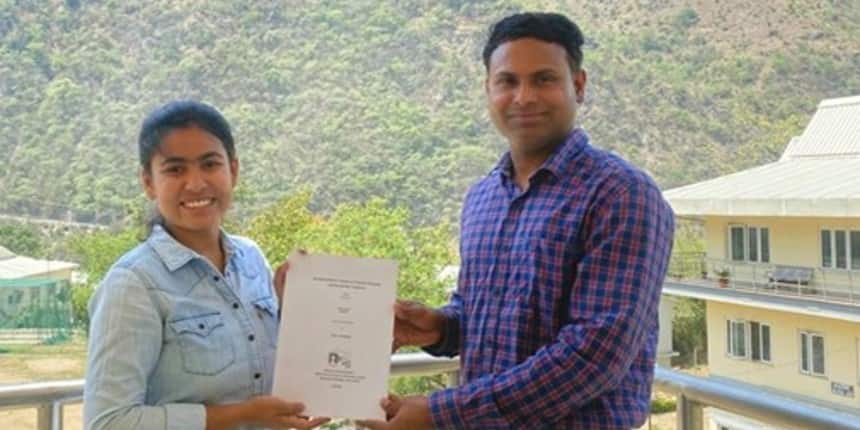IIT Mandi researchers develop crack-free WS2 monolayer for flexible electronic applications
Anu Parthiban | June 10, 2022 | 02:38 PM IST | 2 mins read
IIT Mandi researchers developed a method to mitigate defects in WS2 monolayer. The potential of which is vast, includes applications in large scale.

Mandi: Researchers at the Indian Institute of Technology (IIT) Mandi have developed a process to achieve crack-free Tungsten Disulphide (WS2) monolayer by investigating the role of the growth substrate, thermal stress and defects. The result provides a platform to mitigate defects in Chemical Vapor Deposition (CVD) grown 2D materials for pragmatic applications such as flexible electronics, neuromorphic devices, and sensors.
The findings of this study were published in the ACS Applied Materials Interfaces. The study was led by Viswanath Balakrishnan and co-authored by his student Divya Verma, Pawan Kumar and Deepa Thakur.
Also read | #SavePUFromCentre: Panjab University students protest against conversion to central university
Simultaneously, density functional theory (DFT) simulations were done in collaboration with Chandra Singh, University of Toronto and Sankha Mukherjee, IIT Kharagpur. The project was funded by MHRD-STARS, India and Natural Sciences and Engineering Research Council of Canada (NSERC), the institute said in a statement.
“Atomically thin WS2 monolayers are widely known because of its direct bandgap, high mobility values and ability to provide a platform for heterogeneous integration of multiple functionalities. But the device fabrication of 2D materials using these monolayers is limited due to the lack of large-scale, crack-free growth of monolayers,” it said.
“However, IIT Mandi researchers have demonstrated that crack generation can be avoided despite defects and voids in a WS2 monolayer if CVD growth is performed on a suitable substrate such as sapphire,” it further added.
Also read | Ministry of Education invites applications for National Awards To Teachers 2022; apply till June 20
Highlighting this research, Viswanath Balakrishnan, associate professor, School of Engineering, IIT Mandi, said, “Our team has carried out a systematic investigation to describe severe cracking in WS2 monolayer grown on different substrates by relating the thermal mismatch stress, substrate-monolayer binding energy, and the presence of defect-mediated voids formation.”
Explaining further, Divya Verma said, “This will be crucial for large scale crack free growth of WS 2 monolayer where defect engineering is possible to enhance functionalities without the compromise in mechanical reliability.”
Also read | IIT Jodhpur, WhizHack Technologies inaugurate Centre of Excellence in Cyber Physical Systems Security
The growth of WS2 is also crucial as the growth temperature, growth substrate, and defect formation influence its mechanical stability. Substrate imposes residual stress during growth, and the effect may change because the thermal expansion coefficient will vary for different materials. So, to achieve a crack-free monolayer, one needs to optimize the thermal mismatch stress and the binding energy between the substrate and the monolayer.
Follow us for the latest education news on colleges and universities, admission, courses, exams, research, education policies, study abroad and more..
To get in touch, write to us at news@careers360.com.